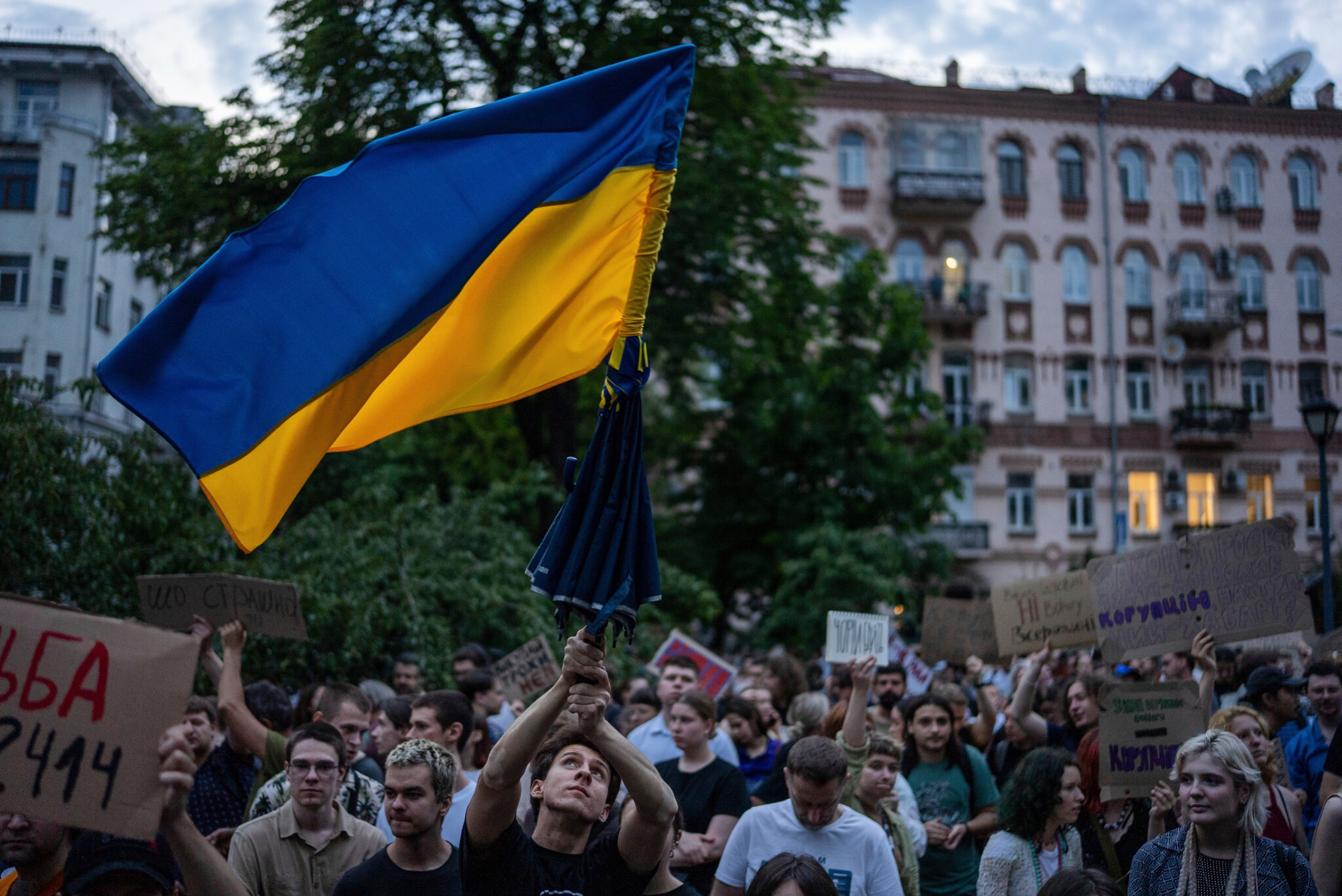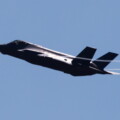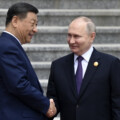As diplomatic efforts to end the war in Ukraine continue after the U.S. President Donald Trump met with Russian President Vladimir Putin in Alaska last Friday, Ukrainian officials are pushing back against suggestions that Kyiv should cede territory to Russia as part of any peace deal. The brokering for peace comes as fighting continues, most recently with Russia hitting Kharkiv with ballistic missiles.
On Monday, Ukrainian President Volodymyr Zelensky met with Trump at the White House, where the U.S. president reiterated his urging of Ukraine to make a deal that would include territory concessions to Russia.
Oleh Nikolenko, the consul general of Ukraine in Toronto, argues that Russia’s recent escalation of attacks following diplomatic meetings demonstrates Moscow’s lack of genuine interest in peace negotiations. The Hub spoke with Nikolenko to better understand Ukraine’s position on potential peace talks and territorial concessions.
Here are five key takeaways from the conversation:
1. Putin’s actions contradict peace rhetoric: Nikolenko argues that Russia’s renewed attacks following diplomatic meetings in Alaska prove Moscow isn’t genuinely interested in a ceasefire and ending the conflict.
2. Ukraine’s constitution prohibits territorial concessions: Ukrainian law prevents President Zelensky from ceding territory to Russia, even if he wanted to pursue such a path.
3. Russia’s military might is overestimated: Despite propaganda portraying Russia as the world’s second-strongest military, Ukraine has demonstrated that this reputation doesn’t match reality on the battlefield.
4. The conflict is existential for Ukraine: Ukrainian officials view the war as a fight for national survival, making compromise on territorial integrity impossible.
5. Canada’s continued support remains crucial: Ukraine values Canada’s military, financial, and humanitarian assistance and sees Canadian support as vital to achieving victory.
Putin’s actions contradict peace rhetoric
Nikolenko points to Russia’s behaviour following recent diplomatic engagements as evidence that Moscow isn’t serious about peace. “The signal that President Putin is sending is that he’s not interested in peace because if he is interested in peace, he would cease immediately the hostilities,” he said.
Instead of de-escalation, Ukrainian officials report increased attacks on civilian targets. “Following the meeting in Alaska, the attacks have been intensified,” Nikolenko noted, adding that civilian casualties have become “a daily reality for Ukraine.” This pattern, he argues, undermines any claims that Russia genuinely wants to end the conflict through negotiation.
Ukraine’s constitution prohibits territorial concessions
When pressed about potential territorial compromises, Nikolenko emphasized legal constraints on Ukrainian leadership. “The constitution of Ukraine does not allow that. And the people of Ukraine do not allow it,” he stated, explaining that President Zelensky lacks the constitutional authority to cede territory even if he chose to do so.
Nikolenko questioned why Ukraine should be expected to make territorial concessions to an aggressor. “Russia has committed a crime of aggression. Russian troops have committed hundreds of thousands of war crimes in Ukraine, including torture, raping, abducting children,” he said. Instead of Ukraine ceding land, he argued, the international community should demand Russia’s withdrawal and accountability for war crimes.
Russia’s military might is overestimated
The Ukrainian official challenged perceptions of Russian military superiority, arguing that Moscow’s propaganda has created false impressions of its capabilities. “Russian propaganda has been very strong since Soviet times. They created this myth that [the] Russian army is the second strongest army in the world,” Nikolenko said.
Ukraine’s resistance has exposed these limitations. “When the full-scale invasion started, we actually proved this, but only in Ukraine. So Russia is the second-strongest army in Ukraine,” he noted. Despite Russia’s nuclear arsenal and larger military, Nikolenko pointed out that the combined GDP of Ukraine and its allies is “50 times more” than Russia’s, suggesting the democratic world has sufficient resources to counter Russian aggression if properly mobilized.
The conflict is existential for Ukraine
Nikolenko framed the war as a matter of national survival, making territorial compromises impossible regardless of external pressure. “For us, it’s existential war. If we cease fighting, we’ll be eliminated,” he explained.
He described the horrific conditions Ukrainian forces have discovered in liberated territories: “As the Ukrainian army liberates territory that was previously occupied by Russia, what we find, we find torture chambers. We find mass graves of civilians.” This reality, he argued, makes it impossible to abandon Ukrainian civilians to Russian occupation, as “it will be a disaster, it will be a catastrophe.”
Canada’s continued support remains crucial
Nikolenko expressed gratitude for Canada’s assistance while emphasizing the ongoing need for support. “Canada has provided Ukraine with many resources, military, financial, humanitarian. We [are] really grateful for that,” he said, noting several phone calls between Prime Minister Carney and President Zelensky.
He argued that Ukraine’s victory serves Canadian interests, particularly given Russia’s Arctic presence. “Unfortunately, Russia is your neighbour. You have a shared region in the Arctic. So there may be a potential increase of threats over there,” Nikolenko warned. A Russian victory in Ukraine, he suggested, could embolden other aggressive actors globally, making collective resistance essential for international security.
This commentary draws on a Hub podcast. It was edited using AI. Full program here.








